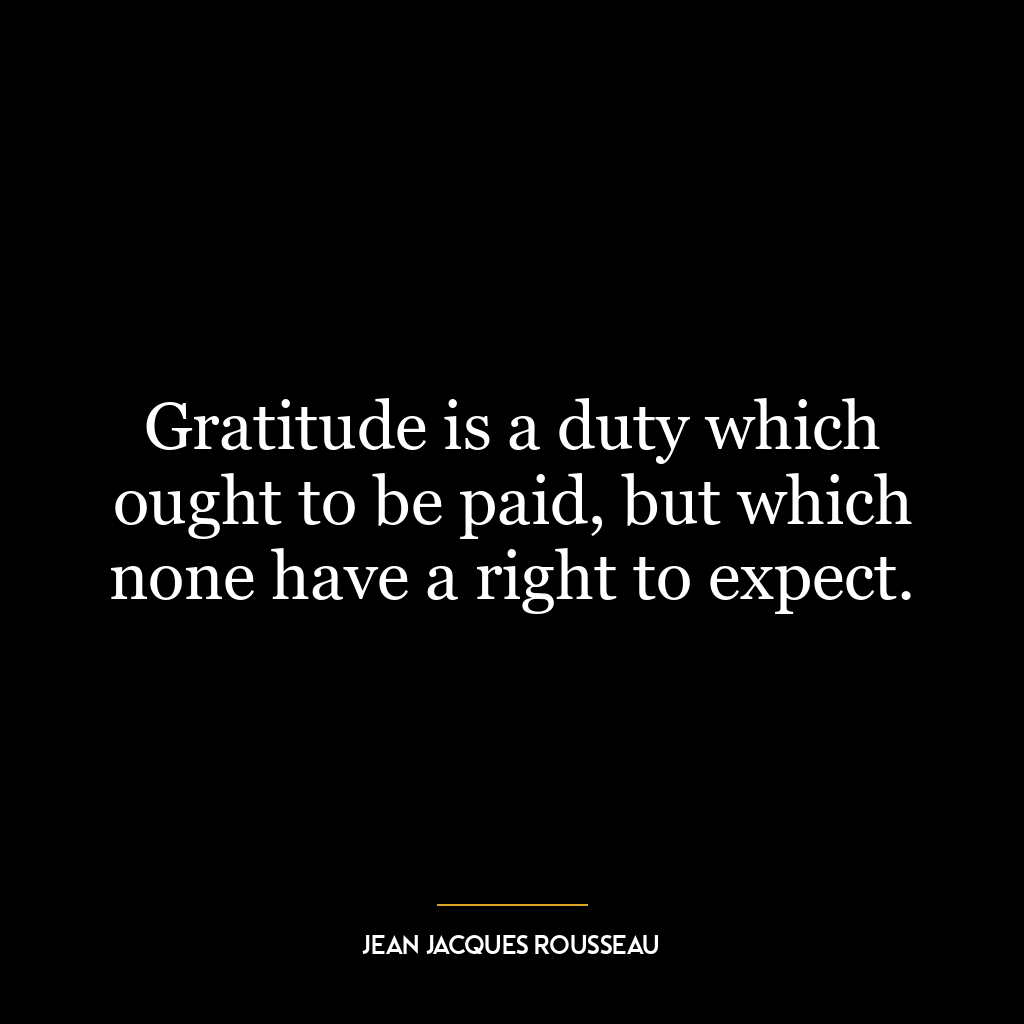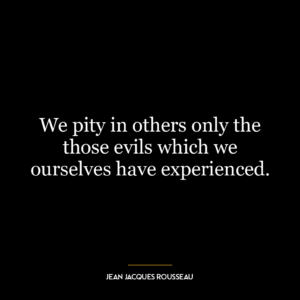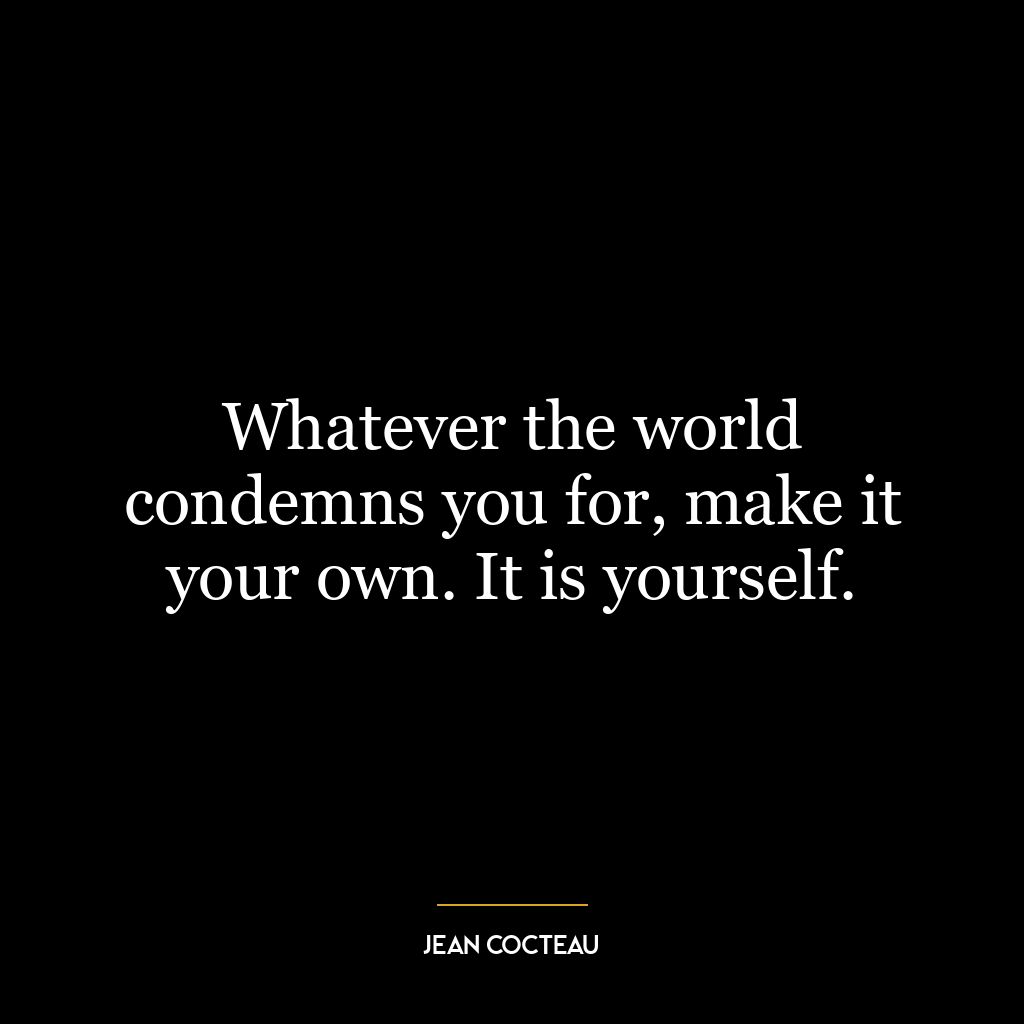Gratitude is a duty which ought to be paid, but which none have a right to expect.
This quote suggests that gratitude is a moral obligation, something we should naturally feel and express when someone does something kind for us. However, it also asserts that no one should demand or anticipate gratitude from others.
Gratitude, according to this perspective, is not a transactional act, but a voluntary expression of appreciation. It’s not something you give to get something in return, but rather a genuine response to kindness or generosity. If gratitude is expected or demanded, it loses its authenticity and becomes a form of emotional debt.
In today’s world, this idea can be applied in many scenarios. For example, in the workplace, a manager might go above and beyond to support a team member’s project. While the manager might hope for some form of appreciation, they should not expect it as a right. The gratitude, if expressed by the team member, should be a genuine response to the support they received.
Similarly, in personal development, cultivating a sense of gratitude can lead to a more positive outlook on life. However, one should not perform acts of kindness with the expectation of gratitude in return. Instead, acts of kindness should be performed for their own sake, with the understanding that gratitude is a bonus, not a requirement.
In essence, this quote encourages us to be grateful and to express gratitude, but to do so genuinely and without expectation of reciprocation. It promotes authenticity in our relationships and interactions, and discourages us from viewing gratitude as a form of currency or obligation.















